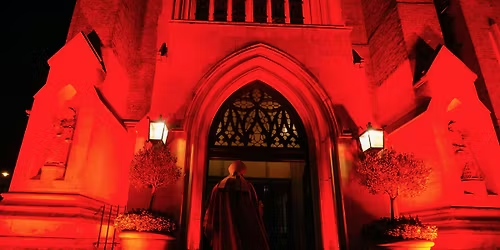
About this Event
On the occasion of the 125th anniversary of Hungarian writer and poet Sándor Márai's birth, the Liszt Institute London presents Striving for Truth, a one-act play performed by Spectrum Theatre.
The 120-minute play sketches the portrait of the writer through diary excerpts and literary works — the story of a creative vocation, uncompromising artistic creed, and the search for the "truth."
Spectrum Theatre’s performance raises deeply personal yet universal questions: What does it mean to be true to oneself? Can perfection be found in love, creativity, or even the meaning of life?
Márai’s thoughts — on the relationship between men and women, the necessity of solitude, the burdens of history, and dying with dignity — remain just as relevant today as they were when he wrote them.
About the Play
Whoever strives for the truth...
The 125th anniversary of Sándor Márai’s birth offers an opportunity to cherry pick from the writer’s rich literary legacy.
At the heart of this selection lies the writer’s sense of vocation and creed. In the diary excerpts gathered, Márai sets forth both a moral and artistic standard, by which compromise is unworthy of the noble mission of a writer. “You are Hungarian, you are European, and you are a writer; you cannot serve any one class, for you must serve the cause of people. There is only one class whose advocate you may be, the class of the suffering; only one party on whose service you have the right to swear allegiance, the party of reason and compassion.”
“I was born a writer,” Márai confesses, who feels responsible for the souls of people. Yet he is driven by a perpetual desire to escape. He flees from the profession appointed to him, from his marriages, stumbles into adventures and escapes from those too; for him, homelessness becomes almost a natural state. He believes that both creative and private solitude are the essential conditions for artistic fulfillment. Without sacrifice, there is no task. “I can only create a human being if I stay away from people... this solitude is not pride, but the final, the ultimate humility,” he writes in his diary.
Though he breaks with journalism, Márai openly condemns World War II, laying bare its every horror. He judged the war criminals harhsly: “We wanted to educate, and the bastards joyfully and mockingly cut the educators’ heads... these must be forced by all means to disappear from the world...” yet he reimans profoundly humane as well: “There is no need for revenge, nor for retribution. Personal accountability before the law is more than enough...”
For the writer, the search for what is true, is not an illusory artistic pose but the practice of his daily life. In his relations with others, in his vocation, in his private existence, he strove toward perfection, toward the true, firmly believing: “The true always exists somewhere.”
Performed by: Ágnes Lőrincz and Sándor TataiEdited by: Sándor TataiDirected by: Viola TörökSet and Costume Design: Tímea TakácsLighting and Sound Technology: Róbert Incze
Event Venue & Nearby Stays
Liszt Institute London, 17-19 Cockspur Street, London, United Kingdom
GBP 0.00












